Do British Citizens Need A Visa For Thailand? [Thailand Visa Guide]
Luke Iles – Uploaded 29.05.2024

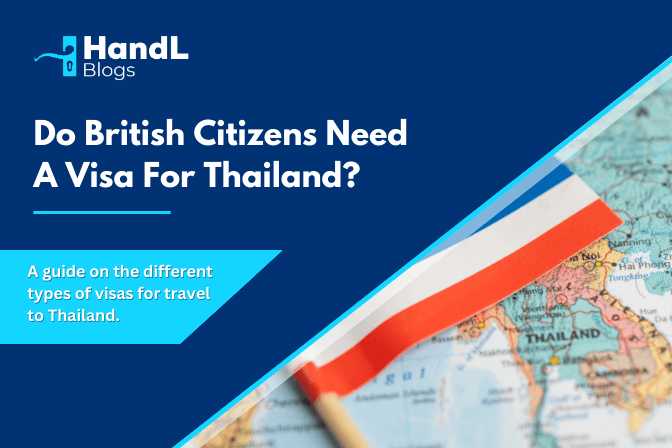
What Visa Do I Need To Travel To Thailand?
If you are a British citizen travelling to Thailand for less than 30 days on a holiday, you do not need to apply for a visa to visit Thailand.
However, although UK nationals that are travelling to Thailand for a holiday do not need to apply for a visa, you may need a visa if you are travelling for a different purpose and if you are planning to stay in Thailand for longer than 30 days.
It is important that you ensure that your biometric passport is up to date and follows all the passport requirements for travel to Thailand as well as that you come prepared with the correct visa. In some cases, you may even need to provide proof of departure from the country so always make sure you have a flight booked out of the country to provide evidence that you do not plan to outstay your visa.
When planning your holiday, you want to ensure your arrival into Thailand is as smooth as possible and that you do not get denied entry when trying to enter Thailand. For this reason, we have done all the travel research for you.
In this guide, you will find a simple guide on all the things you need to consider when it comes to visas and travelling to Thailand.
Please note that this article is up to date on the time it was written and visa procedures may have changed since this article was written. As guidance, it is always best to check the UK Government and Royal Thai Embassy websites for current visa information.
Thai Visa Exemption For British Passport Holders
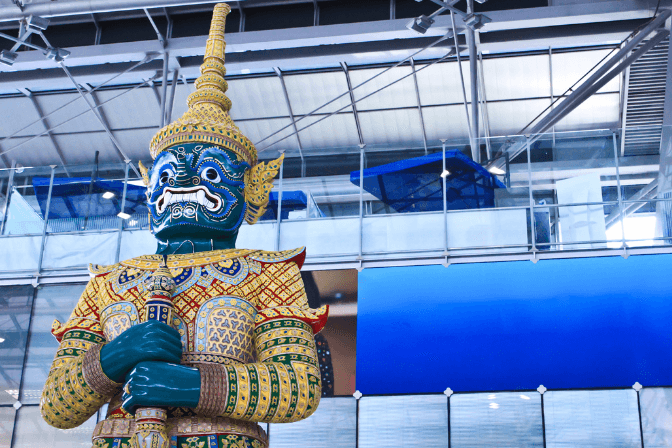
When it comes to planning your trip, packing for Thailand is just as important as ensuring you have the correct visa for entry. Throughout this article, we will provide you with all the relevant information, you need to plan your trip and ensure everything goes smoothly.
British nationals holding a full UK passport can stay in Thailand for up to 30 days under the visa exemption scheme, provided they meet certain requirements. This exemption is available to passport holders from specific countries, including the UK and Ireland, and is intended for tourism purposes only. To qualify, travellers must have a passport with at least six months validity and must enter Thailand via an international airport, such as those in the area of Bangkok, Phuket, or Chiang Mai. Additionally, travelers must possess a confirmed flight ticket showing they will leave Thailand within 30 days and may need to demonstrate proof of adequate finances, either in cash or traveler’s cheques equivalent to 20,000 Baht per person or 40,000 Baht per family, although this is rarely requested by immigration officers.
For land border crossings, UK and Irish passport holders can use the visa exemption scheme only twice per calendar year, whereas there are no such restrictions for those entering by air. If travellers wish to stay beyond the initial 30 days, they can apply for a one-time extension of up to 30 days from the expiry date of their original entry. Overstaying this period results in fines or more severe consequences such as detention, deportation, or blacklisting.
Frequent travellers or those planning to stay longer than 30 days should consider applying for a multiple-entry visa or the appropriate category-specific visa, like a tourist visa or non-immigrant visa, before travelling to Thailand. It’s also important to note that visa exemption is sometimes mistakenly referred to as ‘visa on arrival’ on travel websites, but these are distinct categories; ‘visa on arrival’ does not apply to UK or Irish passport holders.
Dual Nationality
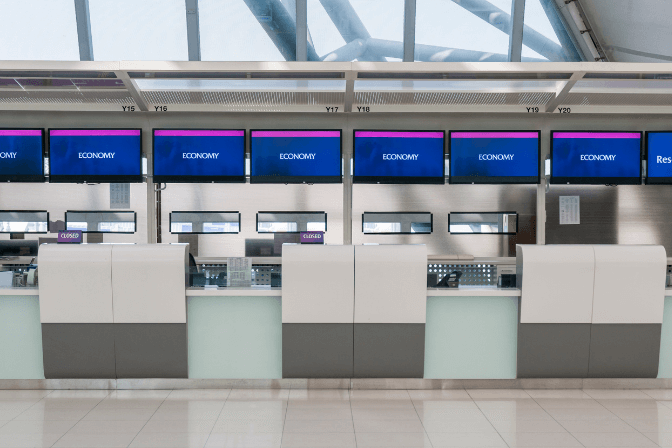
For British nationals holding dual nationality and planning to travel to Thailand, the visa requirements depend on which passport they choose to use for entry. If they enter Thailand using their British passport, they can take advantage of the visa exemption scheme, which allows stays of up to 30 days for tourism purposes without needing to apply for a visa in advance, provided they meet certain conditions such as having a passport valid for at least six months, proof of onward travel within 30 days, and sufficient funds for their stay.
However, if they opt to use their other nationality’s passport, the visa requirements will depend on the agreements between Thailand and the country of the second passport. They will need to check whether that country is also eligible for visa exemption or if they must apply for a visa beforehand.
Regardless of which passport is used, travellers should be aware of the following:
- They must enter Thailand via an international airport to benefit from the 30-day visa exemption scheme; if entering by land, the exemption is limited to twice per calendar year for UK passport holders.
- They must present a confirmed flight ticket showing departure from Thailand within 30 days.
- Proof of sufficient finances may be required, typically 20,000 Baht per person or 40,000 Baht per family.
For stays longer than 30 days, or for purposes other than tourism, obtaining an appropriate visa in advance from a Thai consulate or embassy is necessary. Dual nationals should also be aware that they must consistently use the same passport for both entry into and exit from Thailand to avoid complications.
In summary, British nationals with dual citizenship should carefully consider which passport to use based on their travel plans and the specific visa agreements in place with Thailand for each nationality.
Thai Tourist Visa

A Thai tourist visa is an official document or stamp issued by Thai embassies or consulates abroad that allows British nationals to enter Thailand for tourism purposes. This visa is generally used for stays longer than what is permitted under the visa exemption scheme, which allows British passport holders to stay in Thailand for up to 30 days without a visa.
When to Use a Thai Tourist Visa:
- Stays Longer Than 30 Days: If a British traveller plans to stay in Thailand for more than 30 days, they must apply for a tourist visa before arriving in Thailand. The standard tourist visa allows a stay of up to 60 days and can be extended for an additional 30 days within Thailand.
- Multiple Visits: If a traveller anticipates needing to enter and exit Thailand multiple times over a period of time, a multiple-entry tourist visa may be beneficial. This visa allows multiple entries over a six-month period, with each stay up to 60 days.
- Overland Entry: Since the visa exemption scheme allows only two entries per calendar year by land, travellers who frequently enter Thailand via land borders may need a tourist visa to avoid exceeding this limit.
- Purpose of Visit: While the visa exemption is strictly for tourism purposes, a tourist visa is also for tourism but may be necessary when the duration of stay or frequency of visits exceeds the exemption limits.
Why Use a Thai Tourist Visa:
- Extended Stays: A tourist visa allows for a longer stay than the 30-day limit under the visa exemption scheme, providing more flexibility for extended holidays or long-term travel plans.
- Flexibility: A multiple-entry tourist visa offers flexibility for travellers who plan to visit Thailand frequently within a six-month period, avoiding the restrictions of the visa exemption scheme.
- Legal Compliance: Using a tourist visa helps ensure compliance with Thai immigration laws, avoiding penalties, fines, or issues with overstaying.
- Ease of Extension: Tourist visas can be extended for an additional 30 days from within Thailand, providing a total stay of up to 90 days without needing to leave the country.
How To Apply For A Thai Tourist Visa?
- Application: British travellers need to apply for a Thai tourist visa at a Thai embassy or consulate before travelling. The application usually requires a completed form, passport-sized photographs, a valid passport, proof of onward travel, and proof of sufficient funds.
- Fees: The visa application comes with a fee, which varies depending on the type of visa (single-entry or multiple-entry).
Thai Business Visa
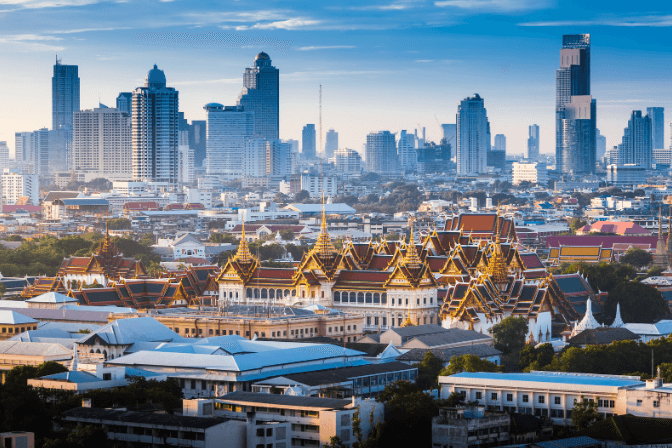
A Thai business visa is an official document or stamp issued by Thai embassies or consulates abroad that permits British nationals to enter Thailand for business-related activities. This visa is essential for those intending to conduct business, attend meetings, or engage in professional activities within Thailand.
When to Use a Thai Business Visa:
- Business Meetings and Conferences: British nationals attending business meetings, conferences, or seminars in Thailand must obtain a business visa to ensure compliance with Thai regulations.
- Work and Employment: Individuals who have secured employment in Thailand need a business visa before applying for a work permit. This visa is also necessary for those setting up or managing a business in Thailand.
- Long-Term Business Activities: For extended business activities that go beyond the duration permitted by a tourist visa, a business visa is required.
Why Use a Thai Business Visa:
- Legal Compliance: Engaging in business activities without the proper visa can lead to legal issues, including fines, deportation, or blacklisting. A business visa ensures that the traveller is legally permitted to conduct business in Thailand.
- Work Permit Eligibility: A business visa is a prerequisite for applying for a work permit in Thailand. Without a business visa, obtaining a work permit is not possible.
- Multiple Entries: Business visas can be issued as single-entry or multiple-entry. A multiple-entry business visa allows the holder to enter and exit Thailand multiple times over the visa’s validity period, providing greater flexibility for ongoing business activities.
- Extended Stay: A business visa typically allows for an initial stay of 90 days, with the possibility of an extension. This is ideal for long-term business projects or assignments.
How To Apply For A Thai Business Visa?
- Application Process: British travellers need to apply for a Thai business visa at a Thai embassy or consulate before travelling. The application usually requires:
- A completed visa application form.
- Passport-sized photographs.
- A passport with at least six months of validity.
- Proof of business activities, such as an invitation letter from a Thai company, business registration documents, or proof of employment.
- Proof of sufficient funds to support the stay.
- Supporting Documents:
- A letter from the applicant’s employer in the UK detailing the nature of the business trip and confirming the applicant’s position.
- An invitation letter from the Thai company detailing the purpose and duration of the visit.
- Business registration documents of the inviting company in Thailand.
- Recent bank statements or financial evidence showing the applicant can support themselves during their stay.
- Fees: Visa application fees vary depending on whether the visa is single-entry or multiple-entry. The multiple-entry visa typically costs more but offers greater flexibility.
- Processing Time: Processing times can vary, so it’s advisable to apply well in advance of the planned travel date.
Types of Business Visas:
- Single-Entry Business Visa: Allows one entry into Thailand for up to 90 days.
- Multiple-Entry Business Visa: Valid for one year, allowing multiple entries with each stay up to 90 days.
Extension To Stay In Thailand
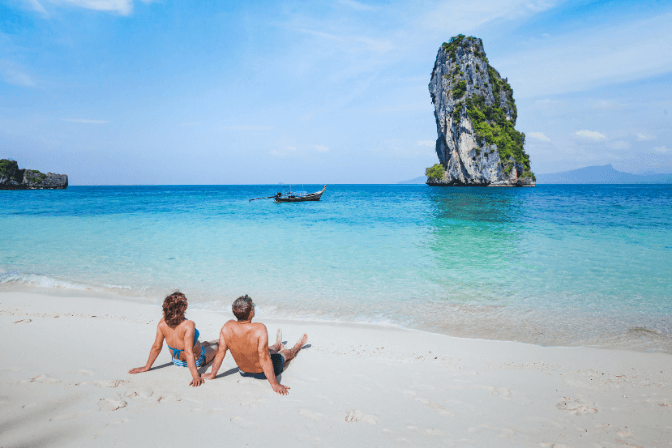
If you’re already in Thailand and wish to extend your stay beyond the initial period allowed by your visa or visa exemption, you can apply for an extension at the Thai Immigration Bureau. Here’s a detailed guide on how to extend your stay in Thailand:
Extending a Tourist Visa or Visa Exemption:
For Tourist Visa Holders:
- Duration: A standard tourist visa allows for an initial stay of up to 60 days. This can be extended once for an additional 30 days, providing a total stay of up to 90 days.
- Application: Visit a Thai Immigration Office. Major offices are located in Bangkok, Chiang Mai, Pattaya, and Phuket.
- Documents Required:
- Completed visa extension application form (TM.7).
- Passport-sized photo.
- Original passport.
- Proof of sufficient funds (such as a bank statement or cash).
- Proof of accommodation (hotel booking, lease agreement, etc.).
- Application fee (usually 1,900 Baht).
For Visa Exemption Holders:
- Duration: If you entered Thailand under the visa exemption scheme, which allows a 30-day stay (or 15 days if arriving by land), you can extend your stay by an additional 30 days.
- Application: The process is the same as for extending a tourist visa. Visit a Thai Immigration Office with the required documents and pay the application fee.
Extending a Business Visa:
- Initial Stay: A non-immigrant B visa (business visa) typically allows for a 90-day stay.
- Extension:
- One-Year Extension: Those holding a work permit or engaging in long-term business activities can apply for a one-year extension of stay.
- Documents Required:
- Completed extension application form (TM.7).
- Original passport.
- Passport-sized photos.
- Work permit.
- Letter from the employer/company in Thailand.
- Company registration documents.
- Proof of income and tax payment.
- Financial evidence showing the company’s operational status.
- Application Fee: Usually 1,900 Baht for a 90-day extension, and additional fees for longer extensions.
General Guidelines for Extension Applications:
- Timing: Apply for an extension at least a week before your current visa or visa exemption period expires to avoid overstaying.
- Overstay Penalties: If you overstay your visa, you will be fined 500 Baht per day, up to a maximum of 20,000 Baht. Overstaying can also lead to detention, deportation, and blacklisting from re-entering Thailand.
- Re-Entry Permit: If you have a visa that allows multiple entries and you plan to leave and return to Thailand, apply for a re-entry permit to keep your visa valid upon re-entry.
Special Extensions:
- COVID-19 Extensions: During the COVID-19 pandemic, special extensions were granted. Check with the local immigration office for current policies as they may have changed.
- Retirement and Marriage Extensions: For those on retirement visas (Non-Immigrant O-A or O-X) or marriage visas (Non-Immigrant O), specific extensions are available and require proof of financial stability, marriage certificate, etc.
What is Proof of Onward Travel?

Proof of onward travel is evidence that you have a confirmed arrangement to leave Thailand before your visa or visa exemption period expires. This can be:
- Flight Tickets: The most common form of proof is a confirmed flight ticket to another country. An e-ticket or a printed itinerary showing your name and travel details is acceptable.
- Bus or Train Tickets: For those planning to travel overland to neighbouring countries like Laos, Cambodia, or Malaysia, a confirmed bus or train ticket can serve as proof.
- Boat Tickets: If leaving Thailand by sea, a confirmed boat or ferry ticket to another destination is required.
Why You Need Proof of Onward Travel:
- Immigration Requirements: Thai immigration officials may ask for proof of onward travel upon entry to ensure you do not overstay your permitted period.
- Airline Requirements: Some airlines may require proof of onward travel at check-in to comply with destination country regulations, avoiding fines for transporting passengers without proper documentation.
- Visa Compliance: It demonstrates your intent to comply with the visa exemption rules or the terms of your visa.
How to Obtain Proof of Onward Travel:
- Purchase a Flexible or Refundable Ticket: If your travel plans are uncertain, consider buying a flexible or refundable ticket that allows changes or cancellations.
- Use a Booking Service: Some online services offer temporary flight reservations that are valid for 24-72 hours, which can be used as proof of onward travel. Ensure these services are reputable and provide legitimate documentation.
- Travel Insurance: Some travel insurance policies include coverage for missed connections or changes in travel plans, which can be beneficial if your onward travel arrangements change.
Tips for Ensuring Compliance:
- Check Requirements: Always verify the specific requirements for onward travel proof with the airline and Thai consulate or embassy before your trip.
- Keep Copies: Have multiple copies of your onward travel documents—both physical and digital versions on your phone or email.
- Stay Informed: Immigration policies can change, so stay updated on the latest requirements from official Thai immigration resources or travel advisories.
Example Scenarios:
- Tourist Visa Holders: If you have a 60-day tourist visa, you might need to show a flight ticket out of Thailand before the 60 days expire.
- Visa Exemption Travelers: If entering Thailand under the visa exemption scheme for 30 days, you need to show proof of leaving within those 30 days, whether by flight, bus, or train.
- Multiple Entries: For those with a multiple-entry visa, proof of onward travel for each entry may be required.
Consequences of Not Having Proof:
- Denied Boarding: Airlines may deny boarding if you cannot provide proof of onward travel.
- Entry Denial: Thai immigration officers can deny entry if you fail to show adequate proof of onward travel.
- Fines and Penalties: Overstaying your permitted period can result in fines, detention, and potential blacklisting from re-entering Thailand.
Conclusion
In conclusion, British citizens generally do not need a visa for short-term stays in Thailand for tourism purposes, thanks to the visa exemption scheme. This allows British passport holders to enter Thailand for up to 30 days if arriving by air or up to 15 days if entering by land, provided they meet the necessary requirements such as having a valid passport, proof of onward travel, and sufficient funds.
For those planning to stay longer than 30 days, engage in business activities, or enter the country multiple times within a short period, obtaining the appropriate visa, such as a tourist visa or a business visa, before travel is essential. Adhering to these requirements ensures compliance with Thai immigration laws, avoids penalties associated with overstays, and facilitates a smooth and enjoyable visit to Thailand.
Read Travel Blogs & More
Disclosure: Some links in this article may be affiliate links, which can provide compensation to HandL Blogs at no cost to you if you decide to purchase through these links. These are products we have personally used and stand behind. This site is not intended to provide financial advice and is for entertainment only. You can read our affiliate disclosure in our privacy policy.

Luke Iles
Luke is a leading travel writer within the travel niche and is also a co-founder of HandL Blogs one of the UK’s leading travel blogging websites. Luke has a love of all things travel.
Initially becoming friends with his other co-founder, Harry, at the age of four years old, they let their love for travel evolve, making it their mission to visit every country in the world!
Today they want to share their passion and experiences of travelling across the globe with written blogs on topics that are most important to them. From travel, cooking, fitness and tech blogs!
Whether that be trying new food in a new country and sharing it in a cooking blog; visiting a new gym in a certain city and reviewing it in a fitness blog or learning about the newest tech within the travel industry.
Disclosure: Some links in this article may be affiliate links, which can provide compensation to HandL Blogs at no cost to you if you decide to purchase through these links. These are products we have personally used and stand behind. This site is not intended to provide financial advice and is for entertainment only. You can read our affiliate disclosure in our privacy policy.
